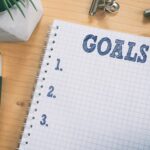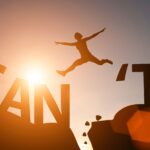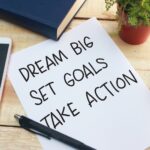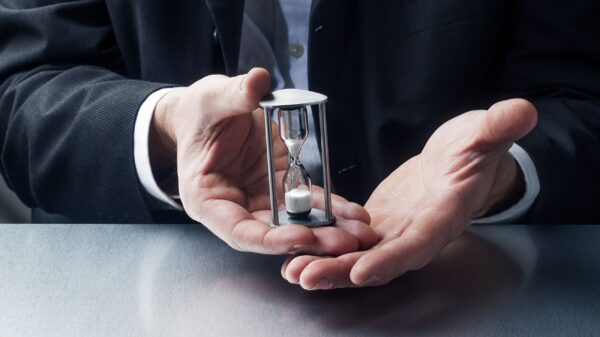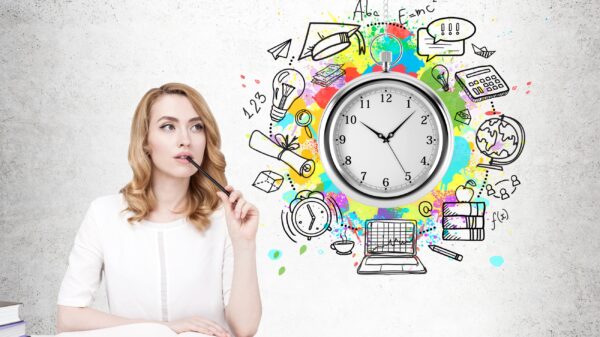Mirror, mirror on the wall, who is the wisest of them all?
Throughout history, the act of personal reflection has been seen as a way of understanding oneself and one’s own experiences. Reflecting on our lives can be a powerful tool in understanding the complex facets of our existence, and with the help of modern tools such as reflection cards, guided reflection exercises, and thought-provoking self-reflection questions, we can unlock our personal potential and navigate through life’s complexities.
The practice of reflection can be compared to a mirror meditation – a silent mirror that can help us to examine our inner thoughts and feelings. By taking the time to reflect on our past, present, and future, we can get a better understanding of ourselves, and identify any areas that require further attention. Through this practice, we can gain insight into our personal motivations, and empower ourselves to make positive changes in our lives. With the help of powerful self-reflection guides, such as life coaching, a year-long personal review, and mindful meditation, we can look into our inner demons and make conscious decisions that can help us move forward in life.
What Is the Mind’s Mirror?
The mind’s mirror is a powerful concept that can help us explore our thoughts and emotions. It can help us gain insight into our values and develop a positive self-image. Reflection exercises such as mirror meditation and guided reflection can help us examine our unexamined lives, while reflection cards can help us explore our personal reflection and powerful self-reflection guides.
Exploring the Concept of Reflection
Have you ever stopped to consider the power of reflection? It can be a powerful tool for personal growth and self-discovery, helping us to gain insight into our lives and the world around us. Exploring the concept of reflection can help us to better understand our thoughts, emotions, values, and the actions we take.
When we take the time to reflect, we can gain a deeper understanding of ourselves and our lives. We can use reflection as a way to gain clarity and focus on what matters most to us. Through reflection, we can learn to make better decisions and create more meaningful relationships.
The practice of reflection can come in many forms, from guided reflection exercises to thought-provoking reflection cards or even mirror meditation. Taking the time to examine our lives can help us to gain a better understanding of our thoughts and feelings, and to gain insight into our behavior and relationships.
Self-reflection can be a powerful tool for self-motivation. Setting aside time for self-reflection can help us to recognize strengths and weaknesses, and to identify areas for improvement and growth. It can also be a tool for personal review and life upheaval, helping us to take stock of our lives and make changes that will empower us to move forward.
Understanding the Power of Perception
Transitioning from the previous section, the concept of the Mind’s Mirror is a powerful one that speaks to the power of perception. Understanding the power of perception can help us to develop greater self-awareness and to make conscious choices about how we interact with the world.
Reflection is a tool that can be used to gain insights into our own and others’ behavior, attitudes, and beliefs. Through reflection, we can gain an understanding of how our personal history, values, and beliefs shape our perceptions, and how those perceptions can shape our interactions with others. Reflection can also help us to recognize and address our own biases and prejudices.
Reflection can be explored through a variety of reflection exercises, reflection cards, and guided reflection. For those who want to go deeper, there are mirror meditation, thought and silent mirror meditation techniques that can be used to explore our inner thoughts and feelings. Today’s self-reflection exercises can also be used to gain insights into our current life experiences and how they are impacting our lives.
Exploring the Power of Reflection in the Mind
Our minds have an incredible capacity for both positive and negative self-reflection, yet it is a power that is often underutilized. To explore the power of reflection in the mind, one must first understand the concept of reflection itself. Reflection is a process of understanding our thoughts, feelings, and experiences by exploring our inner world. It is a form of active self-reflection, or ‘mirroring’, which enables us to better understand our own thoughts, emotions, and values.
Guided reflection can be an incredibly powerful tool in helping us to explore our inner world and gain insight into our lives. This can be done through reflection cards, unexamined lives, mirror meditations, and thought and thinking exercises. It can also be done through more structured activities, such as yearly personal reviews, self-reflection questions, or self-reflection.
The power of reflection in the mind can help us to gain perspective on our lives, and to better understand ourselves, our self-image, and our place in the world.
How Does the Mind’s Mirror Work?
The Mind’s Mirror is a powerful tool for personal reflection. Through guided reflection and mirror meditation, individuals can gain insight into their unexamined lives. The process involves thoughtfully examining one’s thoughts, distorted thoughts, and year personal review. It also involves asking self-reflection questions such as “What have I learned today?” and “What do I need to change?”.
Examining the Role of Environment
The exploration of the Mind’s Mirror begins with examining the role of the environment in our personal reflections. It’s clear that the world around us has a huge influence on our thoughts and beliefs. We may not even be aware of it, but the environment we are in can shape our self-image, and this ultimately affects our decisions and how we interact with others.
The environment we live in plays a key role in shaping our self-motivation and self-reflection. We are constantly surrounded by cultural images that influence our body image and our view of ourselves. We often find ourselves in situations where we are presented with distorted thoughts that can lead to negative body image, such as feeling inadequate or unworthy.
Being aware of how our environment can shape our self-reflection is important for creating meaningful change. We can start by examining our own lives and understanding the impact of our experiences. We can use mirror meditation and self-reflection questions to help us uncover hidden beliefs that may be holding us back.
Understanding the Impact of Experiences
Grasping the significance of one’s experiences is paramount to comprehending the Mind’s Mirror. By examining our past, we can unlock the keys to understanding ourselves better and how we interact with our environment. Through personal reflection, we unearth the thought processes that shape our beliefs and determine our behaviour. Engaging in this process gives us the opportunity to make meaningful changes in our lives and empower ourselves to become the best version of ourselves.
It’s essential to recognize that experiences shape our lives, and there is a direct correlation between our experiences and our self-image. Whether positive or negative, every experience builds upon our understanding of the world and our place in it. The events of our lives shape the way we view our relationships, as well as our self-concept. It is with this understanding that we can begin to explore the impact of our experiences and how they shape our Mind’s Mirror.
We must assess our life upheaval and daily reflections to better understand our experiences and the subsequent impact they have on our lives. This requires us to be mindful in our meditation and ask ourselves self-reflection questions such as: How have I grown over the year? What have I learned? What have been my biggest challenges?
Exploring the Influence of Relationships
Having a deep understanding of the Mind’s Mirror requires examining the role of the environment, understanding the impact of experiences, and exploring the influence of relationships. Our relationships are our mirrors in life, reflecting back to us who we really are. When we are around people who challenge us, encourage us, and hold us accountable, we are inclined to make meaningful changes in our lives.
It is through our relationships that we can gain a personal reflection on our thoughts and actions, and begin to uncover our true beliefs. Each relationship can help us identify unhelpful thought patterns and create healthier thought habits. These relationships can also provide us with the self-motivation and support to create meaningful change.
We can further gain insight into our relationships through mindfulness meditation. Through meditation, we can become aware of our thoughts, feelings, and reactions in the present moment and reflect upon how our reactions are connected to our past experiences. By understanding how our past experiences are influencing our current relationships we can begin to develop a more positive body image.
By using the Mind’s Mirror to uncover our beliefs and create meaningful change, we can begin to empower our lives and break free from our inner demons.
How Can We Use the Mind’s Mirror?
The mind’s mirror can be used to reflect on our motivations and identify our paths forward. By looking inward and considering our actions and intentions, we can make positive changes and appreciate our mistakes. By focusing on possibilities, we can open our minds to new ideas and find the courage to take action on our aspirations. Boldly discovering ourselves and living our truth can be a daunting experience, but one that opens the doors to a lifetime of self-fulfilment.
Reflecting on Our Motivations
With the Mind’s Mirror as our guide, we can begin to reflect on our motivations and gain a better understanding of why we do the things we do. We can start to take a step back and evaluate what drives us and our decisions, and how it shapes our lives.
The Mind’s Mirror can help us explore the depths of our motivations and values. We can dive deeper than the surface level and observe the core of our desires and beliefs. It helps us gain clarity and offers us perspectives that we may have overlooked. We can begin to understand our thoughts and actions on a deeper level and get to the root of why we do the things we do.
We can also begin to recognize the patterns in our lives, such as our habits, thought processes, and reactions. Through this, we can become aware of the impact our beliefs and values have on our day-to-day lives and how they affect who we are as a person. We can start to see what motivates us and if it aligns with our goals and values. It’s an opportunity to really reflect on our lives and build an understanding of ourselves.
The Mind’s Mirror helps us take a step back and recognize our motivations and values.
Identifying Our Path Forward
It’s time to look ahead and figure out where to go next. With the Mind’s Mirror, we can identify our path forward, so that we can make the changes we need to build a more positive life.
We can start by reflecting on our motivations. What are the ultimate goals we want to achieve? What values are important to us? How can we move closer to our dreams? Knowing why we do the things we do can help us make clearer decisions about our future.
Next, we can make positive changes. This could be anything from changing our habits to adjusting our routines. We can also take proactive steps to improve our relationships, such as reaching out to our friends and family and expressing our appreciation. By doing so, we can create a more positive and fulfilling lifestyle.
Appreciating our mistakes is also important. We can learn from our mistakes and use them as an opportunity to grow. Instead of seeing our mistakes as a failure, we can view them as invaluable lessons that can help us succeed in the future.
Finally, we can focus on possibilities. This means taking risks, exploring new opportunities, trying new things, and continuing to take steps towards our goals.
Making Positive Changes
Having gained a better understanding of our inner motivations, we can now use the Mind’s Mirror to make positive changes in our lives. We can start by taking a step back and getting a comprehensive view of our lives. We can evaluate our habits and routines, and assess whether they are helping or hindering our progress. This evaluation requires a great deal of self-reflection, bold but it can be extremely helpful in identifying which behaviours can be modified to bring about positive changes.
With a clear understanding of our habits and routines, we can then begin to craft a plan for making meaningful changes. Creating a plan helps to reduce the feeling of being overwhelmed and sets us up for success. We can start by making small, achievable goals and then move on to more challenging objectives. We can also enlist the help of a friend or family member to stay accountable and motivated.
Making positive change also requires us to be mindful of our emotions. We need to identify our emotional triggers and figure out how to best manage them. This can involve activities like journaling, italic meditation, or expressive arts. The key is to be mindful of our emotional responses and take action to ensure that our well-being is taking priority.
Exploring the Benefits of the Mind’s Mirror
Exploring the benefits of the mind’s mirror is a powerful exercise for personal reflection, thought, and understanding. Through self-reflection questions, self-reflection theory, and meditation, we can gain valuable insights into our self and life while empowering lives in the modern world. Our ongoing life coach journey requires us to reevaluate our goals, overcome challenges, and grow our self-awareness in order to have a more positive body image.
Learning From Our Mistakes
When it comes to improving our lives, learning from our mistakes is a key element. The Mind’s Mirror offers us an opportunity to take a step back and reflect on our experiences, to identify our errors and build on them. Using this tool, we can become more aware of our own thoughts and feelings, and gain insight into our actions and decisions.
Through personal reflection, we can gain clarity on why we made certain choices, and explore the implications of our decisions. We can use this self-reflection to consider our current goals in life and explore whether they are in line with our values. With this understanding, we can make more informed decisions going forward.
We can also use the Mind’s Mirror to assess our current emotional intelligence. By reflecting on our thoughts and actions, we can gain insight into our emotional responses to different situations. This helps us to become more aware of our own feelings and those of others, allowing us to create relationships based on mutual understanding and respect.
Furthermore, using the Mind’s Mirror can help us to understand our own self-image. By reflecting on our personal beliefs and values, we can identify areas for improvement and growth.
Reevaluating Our Goals
The Mind’s Mirror is a powerful tool that can help us to reevaluate our goals, and reclaim our sense of purpose in life. By reflecting on our thoughts and feelings, and actively engaging in personal reflection, we can make a conscious effort to redirect our energy towards the things that make us feel whole and fulfilled. With this tool, we can take a step back to reassess our perspectives and get back on track to achieving our goals.
It is important to take the time to reflect on our year and use this as an opportunity to evaluate the progress we have made on our personal goals. We can ask ourselves self-reflection questions such as: What have I achieved this year? What areas can I improve on? What do I need to let go of? By being mindful of the answers we uncover, we can work towards realigning our values with our actions.
Self-reflection can be a powerful tool for motivating us to take action and create positive change in our lives. Through regular practice of self-reflection and mindfulness meditation, we can begin to understand our inner demons and accept our own personal flaws. We can use this understanding to empower our lives and use it as a means of creating an ongoing dialogue with ourselves.
Overcoming Challenges
The Mind’s Mirror provides us with an invaluable opportunity to overcome challenges. It is a tool for personal reflection that helps us identify our strengths and weaknesses and develop solutions to the difficulties we face in our lives. Through the process of self-reflection, we can gain insight into our own thought patterns, our motivations, our emotions, and our values. We can then use this knowledge to develop strategies for overcoming the challenges we face.
The Mind’s Mirror can be used in conjunction with meditation, self-reflection questions, and self-reflection exercises. We can use these techniques to dig deeper into ourselves and uncover our innermost thoughts and feelings. By reflecting on our experiences and exploring our thoughts and feelings, we can gain insight into our own personal development and growth. Through this process, we can gain a better understanding of our current situation and develop strategies for overcoming our challenges.
The Mind’s Mirror also aids in establishing emotional intelligence. It helps us to become aware of our emotions and recognize the impact they have on our lives. We can learn to control our emotions and use them to our advantage. We can learn to respond to situations in a more constructive way and develop healthier coping mechanisms.
Tips for Making the Most of the Mind’s Mirror
The Mind’s Mirror offers a unique opportunity for individuals to reframe perspectives, create positive change, and set healthy boundaries. To make the most of this experience, it’s important to make time for reflection and develop a structured reflection practice. This could be in the form of meditation, self-reflection questions, or self-reflection activities. Identifying areas of improvement is key in this process, as it helps individuals gain an understanding of their self-image, self-reflection, and self-motivation.
Making Time for Reflection
It’s no secret that modern life can be overwhelming and busy. Taking the time to reflect on your life can be a powerful way to empower yourself and create positive changes in your life. Making time for self-reflection can help you to better understand yourself, identify areas of improvement, and set healthy boundaries.
With year personal reviews, self-reflection can be a powerful tool to motivate and encourage personal growth. By finding the time to periodically review things such as relationships, goals, and values, you can gain an understanding of what is important to you and create a plan to move forward in life. Erika Self-Reflection Rofiqnas explains that “self-reflection is a necessary and ongoing life practice to help us make sense of our experiences, identify our values, and become empowered to take meaningful action.”
Taking the time to meditate and explore your inner self can be a great way to make space for self-reflection. By allowing yourself to take a step back from the hustle and bustle of life, you can give yourself the mental clarity to process and review your thoughts and feelings.
Creating a Reflection Practice
Ready to make the most out of the Mind’s Mirror? Here are tips for creating a reflection practice that will help you get the most out of your self-reflection journey.
First, it’s important to make time for reflection. A year-long personal review, for example, can be an empowering way to look over your life and see what you’d like to change. On the other hand, self-reflection on a daily basis can help you stay in tune with your feelings and identify areas of improvement.
Next, create a safe environment for self-reflection. This could include dedicating space for meditation, or self-reflection without any digital distractions. Regardless of what you choose, make sure that it’s comfortable and allows you to express yourself freely.
Once you have a comfortable space for self-reflection, create a routine that works best for you. Perhaps it’s a daily self-reflection that helps you take stock of the day, or a weekly self-reflection to identify areas of improvement. No matter the frequency, it’s important to remain consistent and ask yourself relevant questions.
Finally, remember to be kind to yourself.
Identifying Areas of Improvement
It’s important to make time for self-reflection in order to make the most of the Mind’s Mirror. Reflection is an essential part of empowering lives. In today’s modern life, it can be difficult to set aside the time for it. However, reflection and self-motivation can go hand in hand. With the help of the Mind’s Mirror, it’s possible to identify areas of improvement and take steps to create a positive body image and overall well-being.
For those who find it difficult to take a step back, it can be helpful to start with a yearly personal review. The process of self-reflection can be a powerful tool for self-discovery and growth. By asking questions such as, “What have I learned this year?” and “What skills have I developed?” it’s possible to gain clarity on how to best move forward.
It’s also important to be mindful of digital distractions. Reflection is about taking time to be present and aware of one’s thoughts and feelings. Taking a break from the hustle and bustle of daily life can be a great way to start the reflection process.
Understanding the Limitations of the Mind’s Mirror
Understanding the Limitations of the Mind’s Mirror requires self-reflection and critical thinking. Cognitive biases can lead to misinterpretation, taking us away from reality. To avoid unnecessary stress, it’s important to take time for self-reflection and self-motivation. Empowering lives with emotional intelligence and positive body image can help us lead a modern life, while daily reflections can help us stay in tune with our life coaching.
Potential for Misinterpretation
It is important to be aware of the potential for misinterpretation when using the Mind’s Mirror. This is because our subconscious can sometimes be unreliable when it comes to interpreting our innermost thoughts and feelings. This can lead to inaccurate assumptions and judgments about ourselves and our lives. It is important to take the time to reflect on our thoughts and feelings and to be aware of potential biases when using the Mind’s Mirror.
When engaging in self-reflection, it is essential to be mindful of our cognitive biases. These are the filters that we use to interpret the world around us, and can influence our thoughts and feelings. It is important to be aware of our biases and to challenge them in order to make sure that we are accurately interpreting our innermost thoughts and feelings.
It is also important to be aware of the potential for unnecessary stress when using the Mind’s Mirror. Reflecting on our lives can be a difficult and uncomfortable process, and it is important to be mindful of our emotional state and to take breaks when needed. It is also important to be aware of our emotional intelligence, and to practice self-compassion and to recognize our own strengths and weaknesses.
Cognitive Biases
One of the primary limitations of the Mind’s Mirror is the potential for misinterpretation due to cognitive biases. Cognitive biases are mental shortcuts that can lead to inaccurate decisions. They can be highly personal and difficult to identify, and can often be caused by factors such as past experiences, emotional connections, and cultural influences.
These biases can lead to distorted thinking and can have a significant impact on our self-image and our ability to make decisions. For example, when it comes to body image, cognitive biases can lead to negative body image markers, such as feeling self-conscious about one’s physical appearance or feeling ashamed about cultural images of body perfection.
It is important to recognize cognitive biases in order to avoid unnecessary stress and lead a more empowered life. Self-reflection, self-motivation, and critical thinking can all help us identify our biases and make changes to our thinking patterns. It can be beneficial to take time each day, or at regular intervals, to self-reflect and ask ourselves questions about our ongoing life and our real-life experiences.
Avoiding Unnecessary Stress
Having a clear understanding of the Mind’s Mirror and its purpose is essential to leveraging its potential and avoiding unnecessary stress. Self-reflection is an important part of the process, as it can provide clarity and insight into our own personal motivations and emotions. To help facilitate this process, it is important to take time to self-reflect and review our thoughts and feelings regularly. One way to do this is to take a few minutes each day to ask ourselves questions about the things we experienced and how they impacted our daily lives and emotional intelligence. Additionally, it is important to be mindful of cognitive biases and negative body image when engaging in self-reflection.
It is possible to become overwhelmed with feelings of anxiety and stress when engaging in self-reflection, which can lead to a distorted view of how we perceive our self-image and body image development. To avoid this, it is essential to remain mindful of our motivation for self-reflection and to keep our focus on the most empowering aspects of our lives. Additionally, it is important to practice compassion and critical thinking when engaging in self-reflection.
How to Make the Mind’s Mirror Work for You
Adopting a Growth Mindset, Developing Self-Awareness, Cultivating Resilience, Recognizing Patterns, and Practicing Gratitude are all ways to empower lives to make the mind’s mirror work for you. Through a yearly personal review and self-reflection, it is possible to develop an understanding of your self-image and self-motivation. Erika’s self-reflection theory can help you to look within and ask yourself empowering questions.
Adopting a Growth Mindset
Discovering the power of a growth mindset is a key step towards empowering lives. By adopting this perspective, it is possible to create a positive and compassionate relationship with oneself and the world. The practice of self-reflection, with the aim of fostering self-awareness and resilience, is essential in the process of cultivating a growth mindset.
Today, self-reflection can take many forms, such as journaling, asking oneself questions, or talking to friends and family. A great way to begin is to take a yearly or bi-yearly personal review and to reflect on the things that have happened in one’s life. For example, Erika Anderson’s self-reflection practice consists of writing about the real-life lessons she has learned during the year, and how she has grown as a result of them.
Having an understanding of one’s body image and body image markers is also an important part of self-motivation. The body is a powerful tool for self-expression, and having a positive relationship with one’s own appearance is key to developing a healthy sense of self.
Developing Self-Awareness
Having a clear understanding of the limitations of the mind’s mirror is only the first step. The next step is to equip yourself with the tools to make it work for you. Developing self-awareness is essential to this process; it requires a commitment to self-reflection and understanding of the things that shape your self-image.
Erika, a self-motivator, suggests that you set aside time for a yearly personal review. This includes reflecting on the past year and how it has shaped who you are today. She suggests asking yourself questions such as: “What did I learn? What were my successes and failures? What can I do differently?” This exercise will help you gain insight into the things that have a positive or negative impact on your self-image.
Rofiqnas, a self-reflection expert, also suggests activities like journaling and gratitude practice, which can be done daily or weekly. Taking the time to write down your thoughts and feelings can help you gain clarity and perspective on your current situation. Additionally, gratitude practice can help you gain an appreciation for yourself and the people around you.
Another way to develop self-awareness is to recognize patterns in how you think and feel about yourself.
Cultivating Resilience
Having a good understanding of the limitations of the mind’s mirror is only the first step. To truly make the most of the mind’s mirror, one must also adopt a growth mindset, develop self-awareness, and cultivate resilience. Cultivating resilience is essential to making the mind’s mirror work for you, as it allows you to look at yourself through a lens of compassion and acceptance.
When it comes to cultivating resilience, start by taking the time to do a personal review of the year. Ask yourself questions like: What have I achieved this year? What has been difficult for me? What have I learned about myself? Taking the time to really reflect on your experiences can be both empowering and enlightening.
From there, it’s also important to start practising self-reflection. Try to be as honest with yourself as possible and really think about how your actions and words have impacted your life. This will help you to identify patterns and areas of growth.
The next step is to start building your self-image. This means taking the time to really consider how you view yourself and your body image. Consider what body image markers make up your self-image and how your body appearance has changed over time.
Conclusion
The conclusion of the journey to understanding the Mind’s Mirror is one of self-reflection. Through self-motivation and self-reflection, Erika has identified patterns in her life and her self-image. She has empowered her life by taking action and celebrating her successes. Finally, Erika has crafted a vision for her future, reframing her life’s events and creating a yearly personal review to assess her progress.
Final Thoughts on the Mind’s Mirror
As we come to the end of our exploration of the Mind’s Mirror, let’s take a moment to reflect on the journey we have taken. By taking the time to look inward, we have discovered insights into our self-image, self-motivation, and empowering ourselves to create a better life. We have also learned how to ask ourselves the right questions when it comes to our body image development and body appearance.
It is now time to review the past year and focus on our real-life goals. We can do this by using Erika’s Self-Reflection Rofiqnas to help us delve into our deepest thoughts and feelings. This will allow us to see what things have been standing in our way, and what time needs to be dedicated to achieving our goals.
It is also important to remember that it is not enough to just think about our goals; we must take action to make them a reality. This means making sure that we have the necessary resources and support to make our dreams come true.
Finally, it is important to celebrate our successes.
Reframing the Future
The power of the mind’s mirror lies in its ability to help us reframe the future. By looking at what we’ve accomplished and what we have to look forward to, we can begin to see the possibilities that present themselves. We can start to see the potential for growth and new experiences, as well as the potential for failure and disappointment. The power of self-reflection can help us to better understand our strengths and weaknesses and create a positive path forward.
It’s important to take time to look back and reflect on the year and ask ourselves questions like: What did I do well? What could I have done better? What did I learn from this year? How can I use this knowledge to empower my life in the future?
As we take the time to ask ourselves these questions in the form of self-reflection, we can begin to create an empowering vision for the upcoming year. We can use our newfound understanding to create a plan of action for real life that will help us reach our goals. We can also use this time of self-reflection to cultivate a greater sense of compassion for ourselves and for those around us.
By looking at our past, we can use the insights learned to create a powerful vision for our future.
Taking Action
Having now explored the ins and outs of making the Mind’s Mirror work for you, it is time to move on to the next step: taking action. While it is important to recognize and understand the potential of the Mind’s Mirror, it is just as important to put that knowledge into action. Taking action is the only way to truly empower your life and begin to create the vision that you have for yourself.
To get started, it is important to take a few moments to self-reflect. Ask yourself questions such as, “What can I do today to make a difference in my life?” or “What do I need to do to reach my goals for this year?” Engaging in these types of self-reflection can help to create a clear and focused plan of action.
Next, it is important to make sure that you have the self-motivation and self-image necessary to stay on track and reach your goals. The Mind’s Mirror can be a powerful tool in creating a positive and empowering self-image. It is important to remember that you can always turn to the Mind’s Mirror to help you stay motivated and on track.
Finally, it is important to remember to be compassionate with yourself.
Conclusion
The Mind’s Mirror gives us the power to self-reflect and explore our innermost motivations and desires. It can be used to empower our lives and give us the insights we need to move forward. Through self-reflection, we can answer the tough questions and uncover the things that truly motivate us. As we reflect on our successes and failures throughout the year, we can learn from our experiences and use them to become more self-motivational and compassionate.
Taking the time for self-reflection is an invaluable exercise that can help us stay on track and make the most of our lives. Today, more than ever, it is essential to take a personal review of our lives and remember the things that matter most. With the help of the Mind’s Mirror, we can find the answers we need to promote our growth and self-reflection. Erika Rofiqnas’ book is the perfect guide to unlocking our potential and empowering lives.
@meta: Discover the secrets of the mind and how it reflects our true motivations for success. Uncover the power of The Mind’s Mirror.


